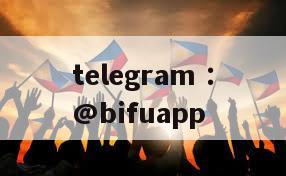in this episode
Lau Yin May is the Group Chief Marketing and Customer Experience Officer (GCMCEO) of Malaysia Airlines. In her 20-year career, she has gained extensive experience in a wide range of fields including aviation, healthcare, education, hospitality, media and advertising. She is not only proficient in leadership and business management, but also has deep attainments in business strategy, management consulting, sales and marketing, marketing communications and operations.
Yin May, welcome to Payments Powerhouses! You have had an interesting career journey, can you share what led you to join Malaysia Airlines?
Yin May: Interestingly, I studied accounting at university, but my first job was as a consultant at Accenture, then moved to GroupM and briefly worked in advertising. I first stepped into the door of Malaysia Airlines in 2004, responsible for cross-departmental key projects and strategy implementation. At that time, I was fortunate to be part of the pioneering team that founded the subsidiary Firefly Airlines and further expanded the tourism territory to establish the travel agency business branch - Firefly Holidays.
In 2011, I left the aviation industry to explore more industries, but as the industry often says, the charm of the aviation industry is like a brand, once you are involved in it, you will never forget it. Being in the aviation industry, you will never feel boring, and passengers only experience the tip of the iceberg of the huge operating system of the aviation industry.
In the past decade, excellent customer experience has become the key to the success of enterprises, and Malaysia Airlines is particularly focused on this. For this reason, in 2018, I chose to return to the aviation industry and set up the Customer Experience Department.
The diversity and challenges of the aviation industry continue to inspire my professional passion.
In the process of leading the marketing and customer experience departments, how do you balance the relationship between the two?
In fact, the two departments complement each other. To create an exceptional customer experience, we work on building a blueprint of our customers’ ideal journey, looking at every touchpoint in detail: from understanding whether our customers like freshly squeezed juice to their preferred booking channel, to whether they prefer a window view or an aisle when choosing their seat, these seemingly insignificant details together form a solid foundation for the customer experience. Once the blueprint of the ideal journey is built, the marketing department plays a vital role in ensuring that this carefully crafted vision is accurately conveyed to every potential customer and inspires them to choose Malaysia Airlines.
I also manage our loyalty program, Enrich. As a key part of the journey continuation, Enrich focuses on meeting the personal needs of customers and providing a seamless experience for customers. We are committed to delivering on our promise to expand the base of loyal travelers who continue to choose us.
How do you segment your passengers or target audience in the aviation field?
At Malaysia Airlines Group, customers are at the heart of everything we do. We divide our customer base into 12 market segments: four seats are corporate customers such as government agencies, and the remaining eight seats focus on various leisure travelers. In the leisure travel sector, we further segment our customers into premium travelers, value-for-money travelers, travelers who prefer individual travel, and travelers who seek exquisite small group experiences (travelers with no more than five people who share the fun of eating, hiking or camping). There is also a large group travel, such as groups of more than ten people. In 2019, we launched Amal (operated by Malaysia Airlines) - an airline dedicated to pilgrims, which is undoubtedly a unique and significant market.
Business travel and leisure travel are very different, especially travel between families and friends. We cherish every opportunity to interact with passengers, whether it is the first contact on the online platform, or through the customer service hotline, airport lounge and check-in. We treat each customer as an individual and customize their journey experience.
These meticulous service processes, although complicated, are full of charm, which is the unique attraction of aviation.
The COVID-19 pandemic has had a great impact on the global tourism and aviation industries. Can you talk about the impact of the pandemic on Malaysia Airlines and the changes in customer behavior you have observed?
The impact of the pandemic is undoubtedly comprehensive and has brought unprecedented impact to the entire industry. Although we have faced many crises in the past, none has had a more profound and comprehensive impact on the global aviation industry than this pandemic. In March 2020, our operations came to a halt almost overnight, with all aircraft grounded.
However, with the foresight of our CEO, we saw the opportunity hidden in the crisis and united to see it as an opportunity. How to break out of adversity in the face of a pandemic?
We quickly realized that passengers were most concerned about the safety and hygiene measures of the airline. Therefore, we took a step ahead and achieved full vaccination of crew members in August 2021, even before the Malaysian border reopened. This move became an advantage for us because customers felt very reassured knowing that the crew they interacted with had been vaccinated.
We also implemented strict hygiene and cleaning standard operating procedures. Our health and safety measures during the pandemic have won international recognition, earning us a seven-star safety rating from AirlineRatings.com in July 2020, and we have also been certified by Bureau Veritas, an international testing and certification body that specializes in testing, inspection and certification services for health and safety standards.
At the same time, we are also deeply aware that airlines need to adopt flexible policies amid uncertainty. As a result, the Horizontal Fare Family program was born, offering unlimited free changes and extensions to all customers who booked flights during the pandemic, allowing passengers to change their flight destinations or travel dates before December 2022 without paying additional change fees. For the Enrich loyalty program, we have also extended the validity of all Enrich points until December 2022.
Payment acceptance in the airline industry is indeed quite complex, especially when it comes to managing its diverse structural components. Can you share the challenges you encountered in this process?
During the pandemic, we encountered a disruptive change - the urgent need for digital transformation, which accelerated the implementation of our digital strategy. The payment process is a clear example, where we need to ensure that we provide customers with a diverse and smooth payment experience.
Cross-border transactions are a major challenge for us. Payment systems in different regions are subject to many restrictions due to local legal frameworks and market characteristics. At the same time, we realize that global consumer needs are different and payment preferences vary from region to region.
Another major challenge is the risk of fraud, which is becoming increasingly rampant as the volume of transactions on digital platforms surges. As a member of the aviation industry, safety and security are at the core of our business, so our payment platform must be smooth, responsive, and support a wide range of payment methods to meet the specific needs of different user groups. We need a solution that can address all of the above challenges in order to alleviate our and our customers' concerns about payment.
In 2020, Malaysia Airlines became the first airline in the Amadeus global network to launch an installment payment plan in Malaysia, Australia and the UK. What are the specific details of this innovative payment measure as the tourism industry gradually recovers?
We have launched a buy now, pay later (BNPL) interest-free instalment service in key markets with Antom subsidiaries 2C2P and Shopback Pay Later, and while the program was launched before the pandemic, we have continued to refine and upgrade it throughout the pandemic to ensure that the program is consistent with our goal of providing customers with flexible and diverse payment options.
Another recent innovation is MHPay, which further enriches our diversified payment matrix. MHPay is a payment solution in partnership with the International Air Transport Association (IATA) through IATA Pay and powered by 2C2P, providing Malaysia Airlines customers with a smoother and more secure way to pay online. With efficient transaction processing speeds and proven low fraud risk, MHPay further deepens our commitment to ensure that customers enjoy the highest level of security during the ticket purchase process.

In addition, last year we launched Enrich Shop, a convenient online shopping platform designed for Enrich members, offering products from well-known brands such as Tumi, Sephora, Watsons, etc. Enrich Shop uses instant payment solutions to ensure a smooth payment experience for users, and members can accumulate Enrich points for every purchase in Enrich Shop.
Enrich, Malaysia Airlines' travel and lifestyle loyalty program, not only allows members to easily earn points when flying on Malaysia Airlines and its partner airlines, but also extends to a wide range of daily life scenarios. Members can earn Enrich points when dining at partner restaurants, and can also use points to redeem Grand Hyatt's spa experience or meal vouchers at our partner hotels to enjoy more benefits.
During the pandemic, we also launched Enrich's cooperation projects with several charitable organizations to help local communities affected by the pandemic. Enrich members can use their points to donate and spread their love through these charitable organizations. In addition, we have also cooperated with other loyalty programs such as Sunway Pals to achieve point interoperability, allowing members to transfer points from other programs to Enrich, increasing member benefits and giving points more flexibility.
I noticed that the Sustainable Development Blueprint initiative proposed by Malaysia Airlines is quite innovative in the aviation industry. Can you tell us more about this initiative?
Promoting initiatives that combine social responsibility and environmental protection is a top priority for our work. In April 2021, we launched the MAG Sustainable Development Blueprint, which aims to lead all members of the group to move towards the goal of achieving net zero carbon emissions by 2050.
In this sustainability roadmap, we focus on five key dimensions: environment, economy, safety and security, society and governance. We have launched the Sustainable Aviation Fuel (SAF) project as a key lever towards our long-term net zero emissions vision. However, as you know, SAF research and development needs to be further developed and accompanied by high funding requirements! We believe that in order to continue this work, more organizations need to work together to encourage the industry to actively adopt SAF. A few months ago, we successfully completed the first test flight using SAF, which successfully flew between Kuala Lumpur and Singapore, and we are currently planning to deploy more flights using SAF.
In addition, our sustainability initiatives also include support for the social level, such as the "25 by 2025" policy dedicated to gender diversity, which is to ensure that the proportion of women in the aviation industry reaches 25% by 2025, in response to IATA's signature commitment to promote the well-being of women in aviation.
We are actively advancing a number of core projects with the primary goal of achieving net zero emissions. At the same time, we are also committed to improving aircraft operating efficiency and exploring the application of innovative technologies in our fleet. To further reduce our carbon footprint, we have launched a comprehensive carbon accounting to monitor greenhouse gas emissions across the Group.
In addition, we are planning to launch a waste management program and adopt a rainwater collection system in our internal facilities. These measures may seem small, but they are far-reaching and will not only help protect the natural environment, but also aim to awaken public environmental awareness. We have also partnered with WWF Malaysia to provide passengers with multiple ways to donate to build an ecological wall. We have integrated donation elements into our fare structure so that passengers can contribute to the environment when they buy tickets.
How do you see the future development trend of the aviation and travel industries?
We must rely on data analysis and trend prediction to lay out forward-looking strategic planning. Today, with the reopening of borders, the tourism industry is showing a strong recovery momentum, but the aviation industry is facing severe challenges from soaring fuel prices. Geopolitical tensions have caused fuel costs to increase by more than 60%, which has put a significant pressure on our logistics operations, and raw material costs have accounted for nearly 40% of total expenses.
Human resource challenges are also severe, which is particularly evident at airports in Europe and Australia. During the epidemic, airlines have laid off a large number of employees, and it is not easy to recruit talents again now. Fortunately, Malaysia Airlines Group did not make any major staff changes other than natural attrition. Pilots voluntarily accepted a salary adjustment of up to 65%, which ensured the company's stable operation and team cohesion. Therefore, when the industry showed signs of recovery, we were well prepared and did not cancel flights due to lack of manpower. It can be said that the baptism of the epidemic has forged unprecedented cohesion within our group, which is an unexpected gain.
Speaking of teamwork to create positive results, let's end this interview with a lighthearted question: Please tell us more about the latest safety video released by Malaysia Airlines, "Satu Dua Tiga, Jom!" - this work is not only funny, but also contains profound meaning.
In my opinion, this video is of great significance and vividly interprets the core values and concepts of our airline. Although the outside world generally believes that the aviation industry has suffered a heavy blow during the epidemic, in fact, the performing arts industry has also suffered a heavy blow to the same extent. No one cares about live performances and the entire industry has almost stopped for two years.
We hope to use this opportunity to unite the strength of Malaysians, sow the seeds of hope, and celebrate the beauty of life. At that time, there was so much pessimism and negativity in the society, and we felt the need to add a touch of color, vitality and passion to the whole society. As the national airline, we want to proudly showcase the style of Malaysia on the global stage. In the video, many local Malaysian creative talents and athletes gathered together. They are the pride of Malaysia. We hope that through this video, their light will shine on the world. It is gratifying that the production of this safety video was completed independently by a local team in Malaysia.
"Payments Powerhouses" is a monthly feature series focusing on interviewing leaders in the field of payments and financial technology in Southeast Asia and around the world.

 bifu pay
bifu pay





发表评论
发表评论: